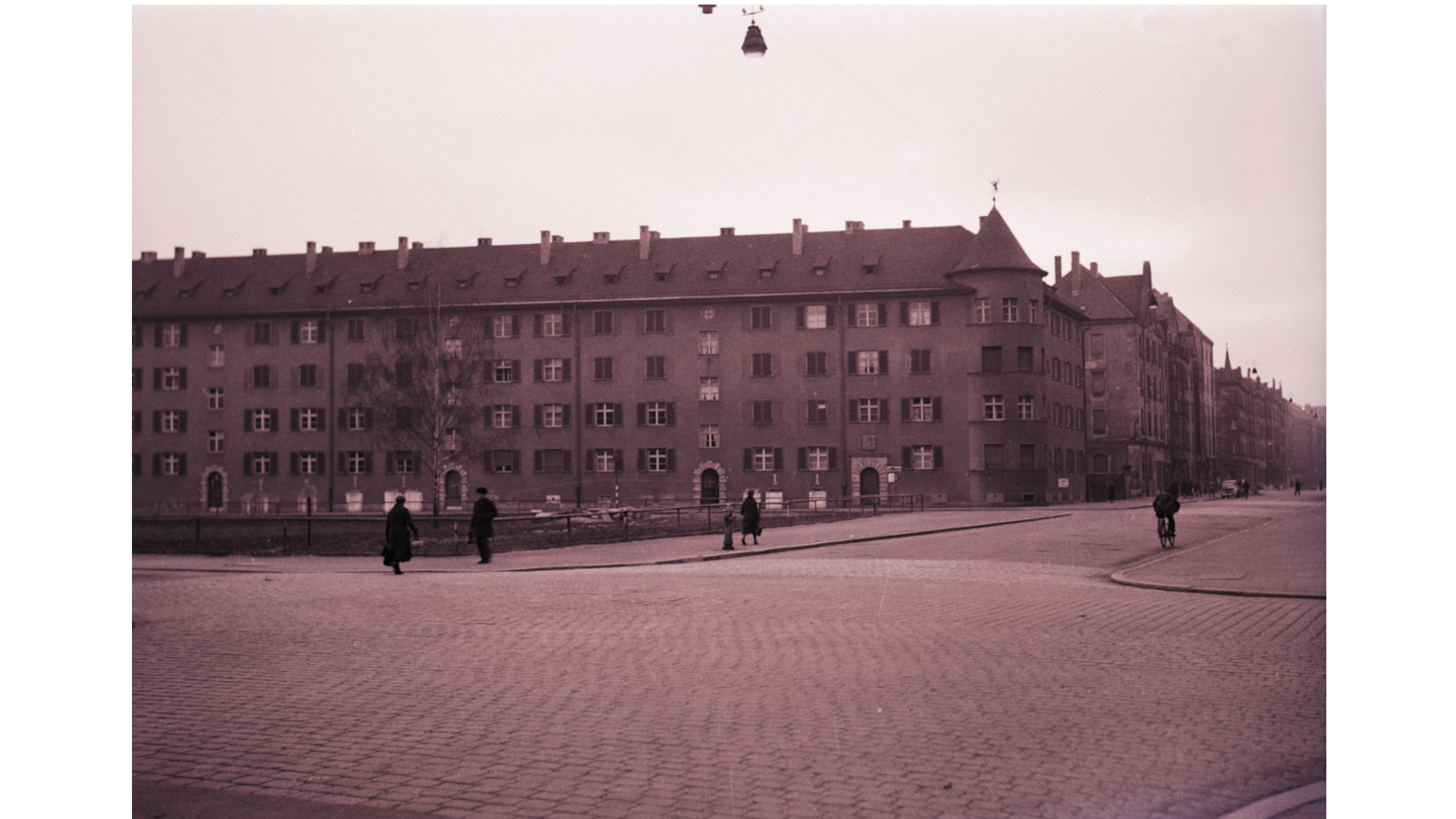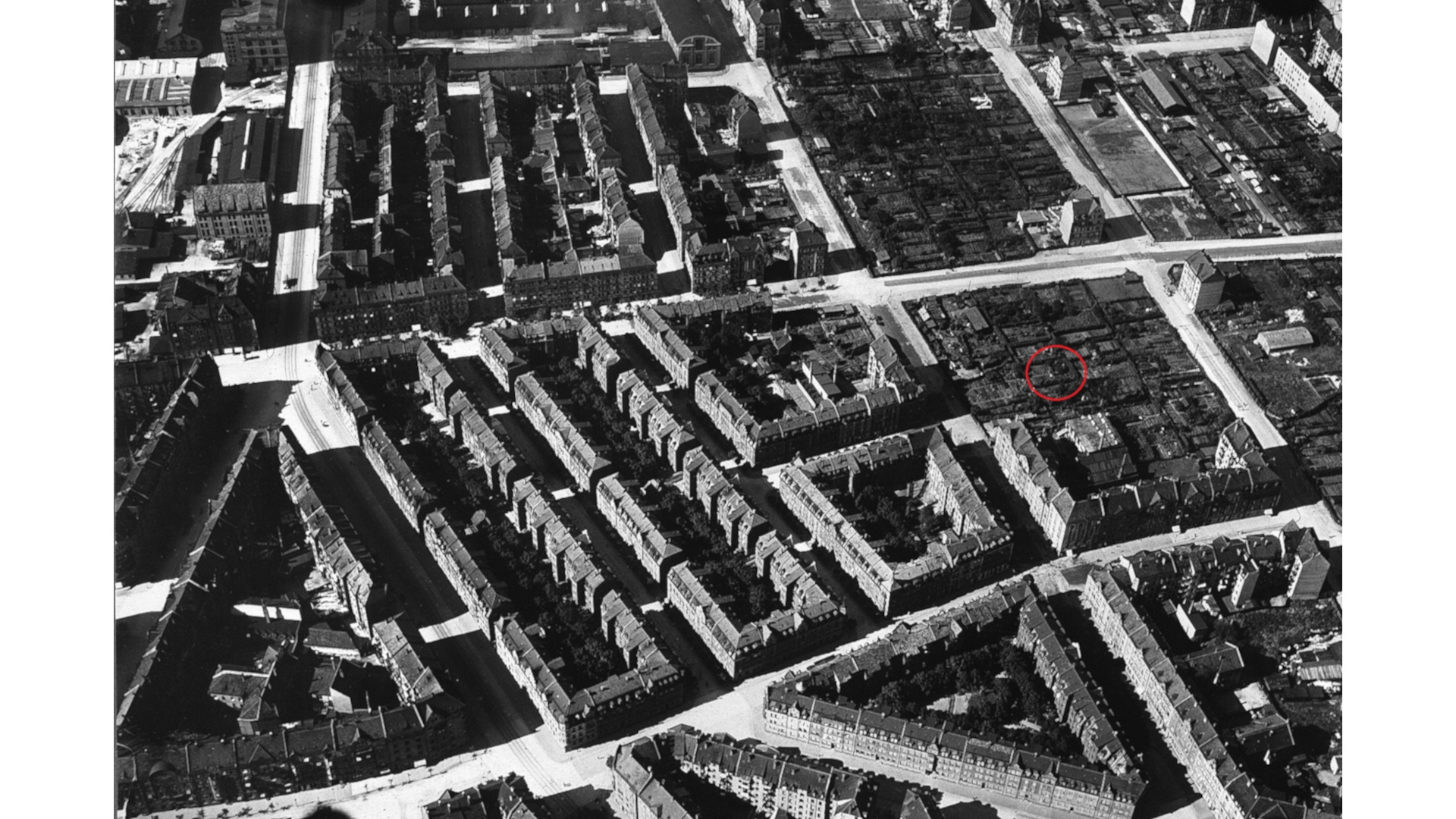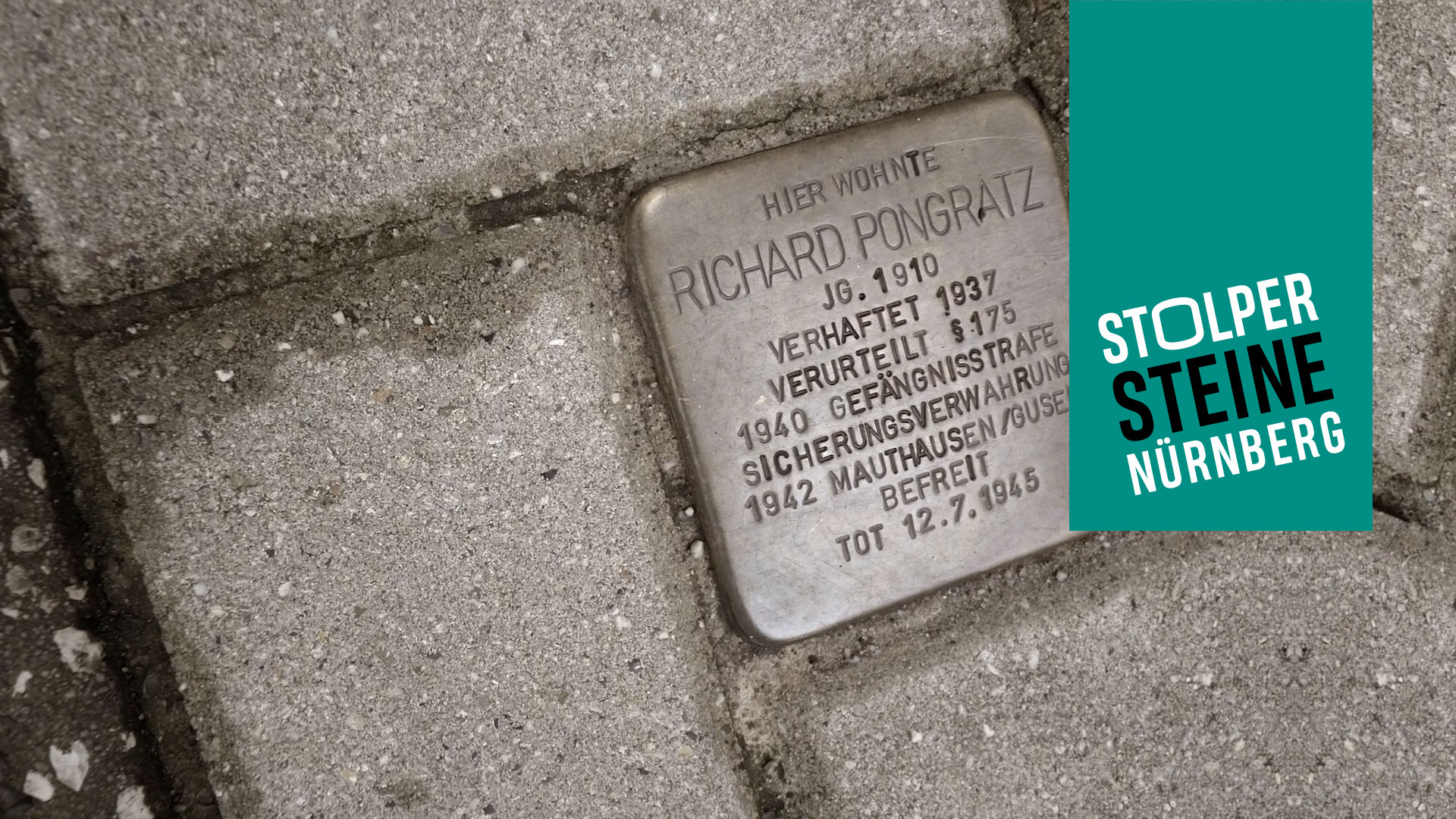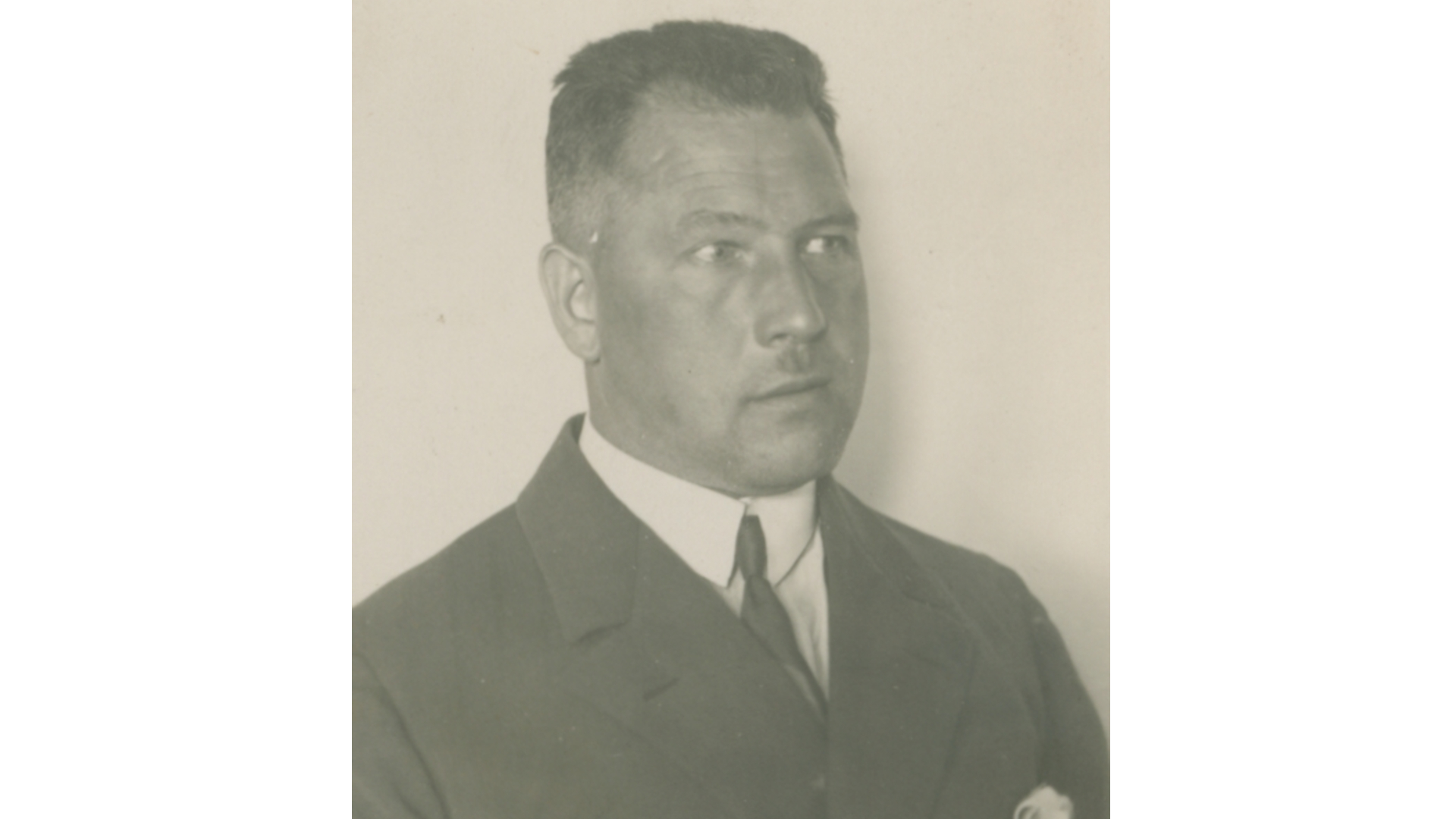| Location of stone: Schuckertplatz 6 | District: Rabus |
| Sponsor: Bastian Brauwer and Andreas Hentschel | Laying of stone: 9 November 2018 |
Biography
On 9 November 2018 Gunter Demnig came to Nuremberg to lay stumbling stones. On this day, the 80th anniversary of the “Night of Broken Glass”, he laid stumbling stones for Jewish and homosexual victims of National Socialism. Bastian Brauwer und Andreas Hentschel sponsored the laying of the stone for Richard Pongratz. Pongratz died in 1945 in Gusen concentration camp.
Richard Pongratz was born in Nuremberg on 18 June 1910 and was brought up by his single mother Franziska. After leaving school, he completed his commercial training with the textile wholesaler Guldmann, where he was then taken on as an employee. Already as a young man he came into conflict with the police and the judicial authorities on account of his homosexuality. In 1937 for instance, he was convicted of contravening Paragraph 175 and given a nine-month jail sentence, which he served in the prison in Ebrach.
Despite this repression by the state, Richard apparently accepted his homosexuality and could not see anything wrong with it. In a later psychological report on Pongratz, he is referred to contemptuously as an “unrestrained homosexual” who does not exhibit any shame at all and feels that he is an “innocent victim of persecution”. At any rate, Pongratz built up a circle of homosexual friends in Nuremberg. At the beginning of 1939, this became the object of police investigations, during which a 19-year-old acquaintance of Pongratz made a substantial statement to the police, denouncing many of his sexual partners. Pongratz was one of those named. He was subsequently arrested in his flat at Schuckertplatz and taken into custody.
The trial which followed, against him and three other men, took place on 13 June 1939 before the Nuermberg-Fürth regional court. He was sentenced to two years’ imprisonment. His lawyer thought the sentence was too harsh and lodged an appeal against the court’s decision. This had fatal consequences: examining the judgement, the Reich Court in Leipzig did not disagree with the sentence, but was of the opinion that Pongratz clearly had an “addiction to homosexual misconduct” and was therefore to be viewed as a “dangerous habitual criminal”. A new trial took place. Pronouncing its judgement in February 1940, the Nuremberg-Fürth regional court this time not only upheld the original two-year jail sentence but also ordered that Pongratz be placed under preventive detention. This meant that he was not released after serving his sentence in Ebrach Prison.
In December 1942, in accord with the preventive detention order, Pongratz was transferred to Mauthausen concentration camp, where he remained until the end of the war. Mauthausen was a Level III concentration camp, where the prisoners were systematically murdered through hard work. The death rate amongst inmates was particularly high. Today, it is estimated that over 90,000 people died in Mauthausen up until the liberation of the camp by the US army in May 1945. Pongratz was in Gusen, a satellite camp of Mauthausen, when the Americans arrived there. However, it appears that his sufferings as a concentration camp inmate had weakened him to such an extent that he was unable to leave Gusen. He died in the military hospital there on 12 July 1945 and was buried in the camp cemetery.








